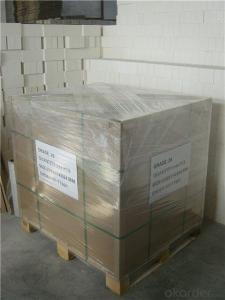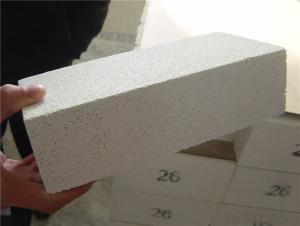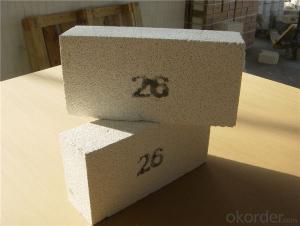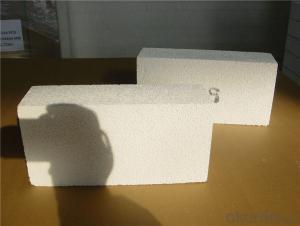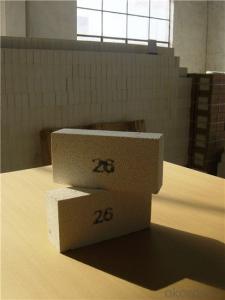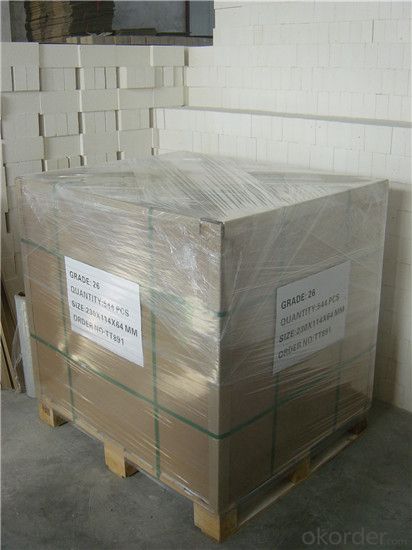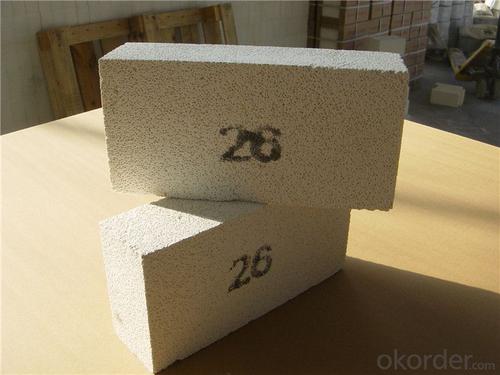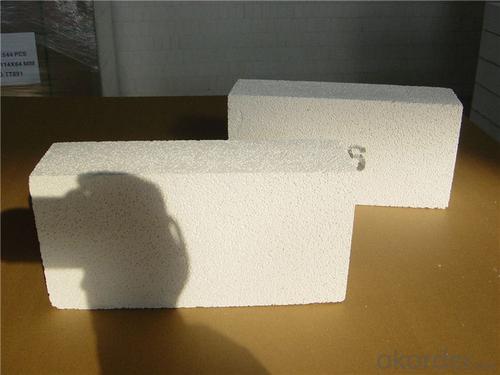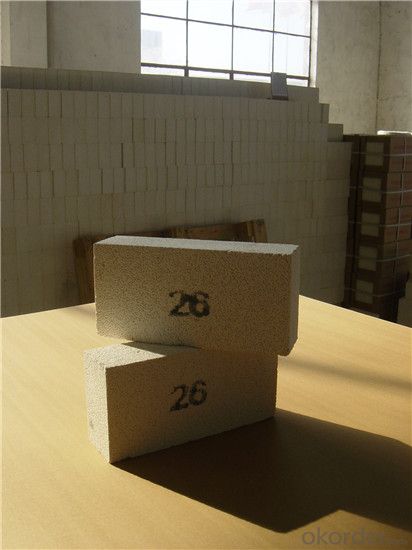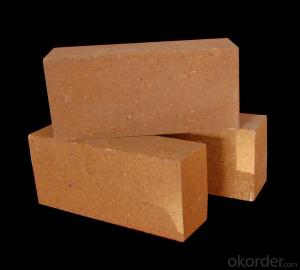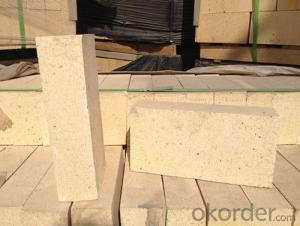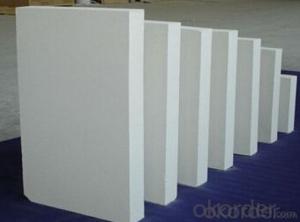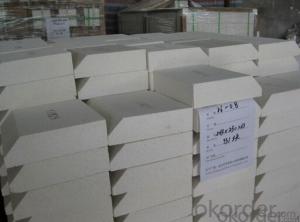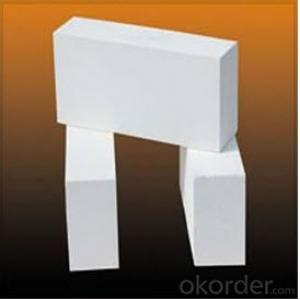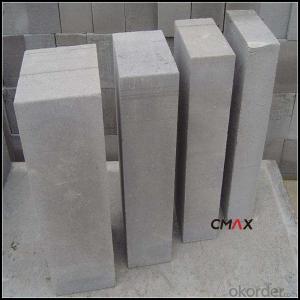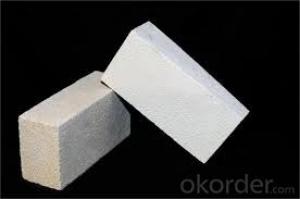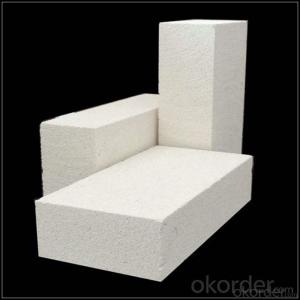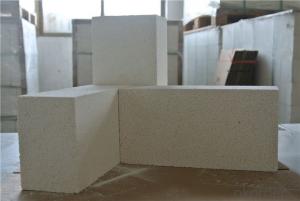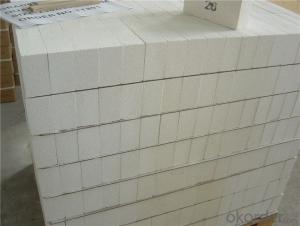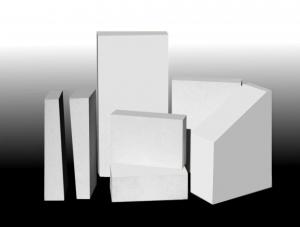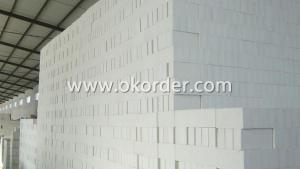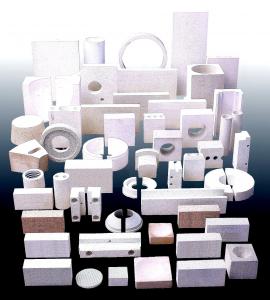Insulating Fire Brick - Thermal Insulation Clay Refractory Brick
- Loading Port:
- Shanghai
- Payment Terms:
- TT OR LC
- Min Order Qty:
- 1 m.t.
- Supply Capability:
- 1000 m.t./month
OKorder Service Pledge
OKorder Financial Service
You Might Also Like
Thermal Insulation Fire Clay Brick
Refractory brick is a block of refractory ceramic material used in lining furnaces, kilns, fireboxes, and fireplaces.
We provide high quality Refractory Fire Bricks that are used on wide range in the various industries like Cement, Glass and Steel. Refractory Fire Bricks are provided as per the quantity and specifications required by the customers. We provide an extensive range of Refractory Fire Bricks at reasonable prices that depend upon the quantity ordered.
Application
Insulating Fire Brick are used for the lining of converter, alternating current arc furnace, direct Current arc furnace and the ladle slag line, etc.
Company Advantage
(1)Long Insulating Fire Brick manufacture history: 25 years manufacturer
(2)Advanced equipment
(3)Diversification of production standards: ISO ANSI FEPA JIS ASTM
(4)Flexible payment: T/T L/C D/P D/A
(5)Professional marketing team and after-sale service
Insulating Fire Brick main feature:
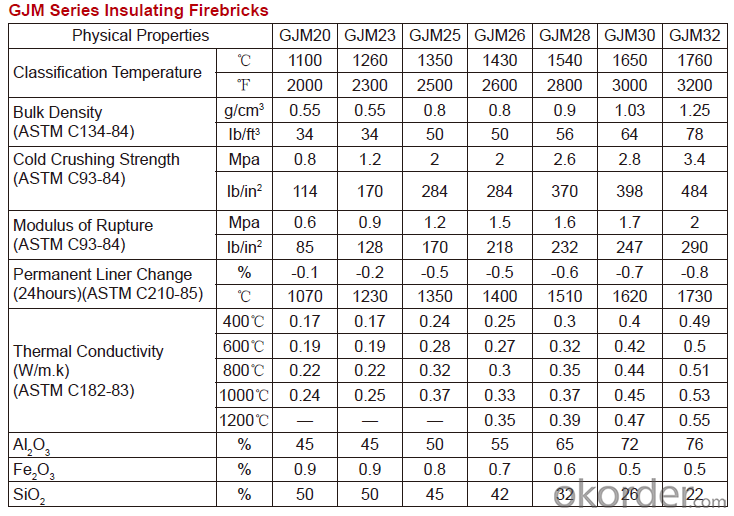
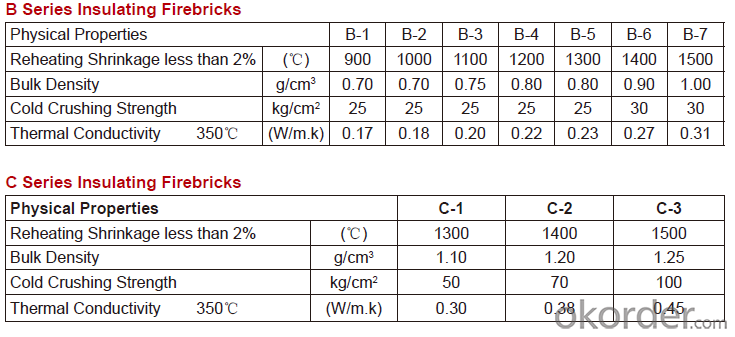
Equipment
1 unit of Ceramic Abrasive (SG Abrasive) pilot production line
2 units of Compact grain Abrasive pilot production lines
1 unit of high-end coated abrasives (abrasive cloth) production line
2 units of Boron Carbide production lines
3 large flexible crushing and sieving lines for grit production lines
6 units of 5000KVA-10000KVA dumping type electric arc furnaces for Brown Fused Alumina fusion
Q1 What’s the transport method?
A1 FCL delivery goods with wooden pallet or wooden case by sea; If LCL delivery, must with wooden case; Sometimes need open top, flat rack or bulk cargo.
Q2 What’s the required payment term?
A2 Generally 30% TT as the prepayment, 70% TT before delivery. If need, 100% Irrevocable Letter of Credit or negotiation.
Q3 Which country are our products exported to?
A3 Apart from entire Chinese market, the US, Russia, Japan, Korea, Australia and some Southeast Asian Nations.
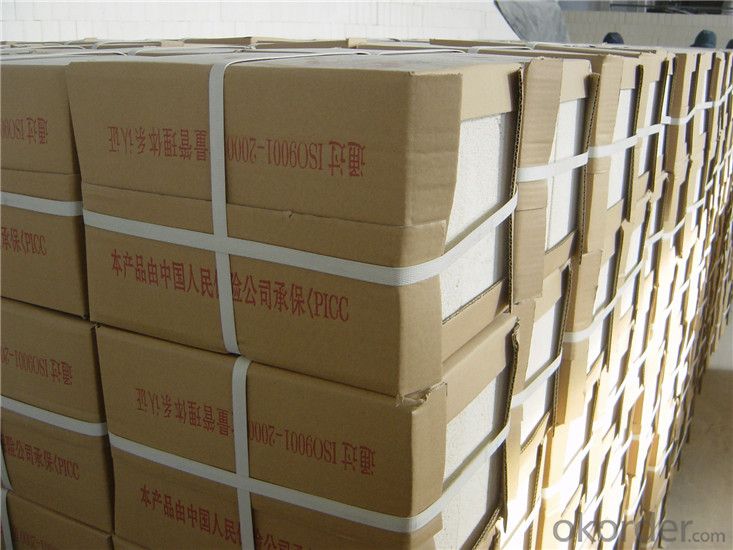
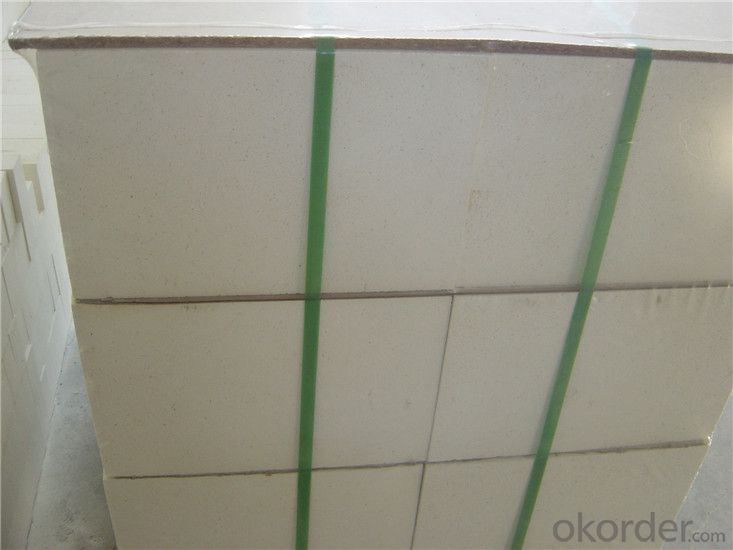
- Q: Are insulating fire bricks suitable for outdoor applications?
- Insulating fire bricks are generally unsuitable for outdoor use. They are designed for high-temperature environments like kilns, furnaces, and industrial settings, offering excellent thermal insulation and withstanding extreme heat. Nevertheless, insulating fire bricks are vulnerable to moisture, rain, and harsh weather conditions outdoors. They can easily be damaged and are not resistant to freezing and thawing, leading to cracks and breakage. For outdoor applications, it is advisable to opt for fire bricks specifically designed for such purposes. These bricks are typically made of dense clay or other materials that can endure moisture and weather conditions. They are more robust and offer superior protection against the elements. Before choosing the appropriate fire bricks for your outdoor needs, it is essential to take into account the specific requirements and conditions of your application. Seeking guidance from a knowledgeable professional or supplier in fire bricks can ensure that you select the suitable product for your requirements.
- Q: Can insulating fire bricks be used in chimney lining?
- Yes, insulating fire bricks can be used in chimney lining. Insulating fire bricks are designed to withstand high temperatures and provide excellent insulation, making them suitable for lining chimneys. They help to retain heat within the chimney, preventing it from escaping through the walls and improving the efficiency of the fireplace or stove. Additionally, these bricks are lightweight and easy to install, making them a popular choice for chimney lining projects. However, it is important to ensure that the specific type of insulating fire brick being used is suitable for chimney applications and complies with local building codes and regulations.
- Q: Can insulating fire bricks be used in oil refineries?
- Yes, insulating fire bricks can be used in oil refineries. These bricks are designed to withstand high temperatures and provide excellent insulation, making them suitable for various industrial applications, including oil refineries. They help to reduce heat loss, improve energy efficiency, and protect the surrounding equipment and structures from extreme heat.
- Q: What is the typical flexural strength of an insulating fire brick?
- The typical flexural strength of an insulating fire brick can vary depending on the specific composition and manufacturing process. However, on average, insulating fire bricks have a flexural strength range of 1-10 megapascals (MPa).
- Q: Can insulating fire bricks be used in the construction of combustion chambers?
- Yes, insulating fire bricks can be used in the construction of combustion chambers. These bricks are designed to withstand high temperatures and provide excellent insulation, making them suitable for containing and directing heat in combustion processes.
- Q: Are insulating fire bricks suitable for use in residential fireplaces?
- Yes, insulating fire bricks are suitable for use in residential fireplaces. They are designed to withstand high temperatures and provide insulation, making them an ideal choice for ensuring the safety and efficiency of a residential fireplace.
- Q: Do insulating fire bricks have a high insulating capacity?
- Insulating fire bricks possess a remarkable capacity for insulation. Crafted with utmost precision, these bricks exhibit exceptional thermal insulation characteristics, rendering them exceptionally proficient in obstructing heat transfer. Their composition entails lightweight materials like ceramic fibers, known for their minimal thermal conductivity. Consequently, insulating fire bricks adeptly capture and maintain heat, effectively thwarting its escape and ensuring adequate insulation of the surrounding space. Owing to their superior insulating capacity, these bricks find extensive utilization in domains that prioritize heat retention and energy efficacy, including furnaces, kilns, and fireplaces.
- Q: Can insulating fire bricks be used in steam boilers?
- Yes, insulating fire bricks can be used in steam boilers. They are designed to withstand high temperatures and provide thermal insulation, making them suitable for steam boiler applications.
- Q: Can insulating fire bricks be used in the construction of incineration kilns?
- Yes, insulating fire bricks can be used in the construction of incineration kilns. These bricks have excellent thermal insulation properties, which helps in maintaining high temperatures inside the kiln while minimizing heat loss to the surroundings. This is crucial in incineration processes where high temperatures are required to efficiently burn waste materials. Additionally, insulating fire bricks are resistant to thermal shock and can withstand the extreme temperatures and harsh conditions typically found in incineration kilns.
- Q: Are insulating fire bricks resistant to acids and alkalis?
- Insulating fire bricks are generally resistant to acids and alkalis, but the level of resistance can vary depending on the specific composition and manufacturing process of the bricks. Insulating fire bricks are typically made from materials such as alumina, silica, or a combination of both, which provide excellent resistance to high temperatures and thermal conductivity. These materials are generally chemically inert, meaning they do not react with acids or alkalis. However, it is important to note that some acids and alkalis can still cause slight degradation or corrosion over time, especially if they are highly concentrated or used at elevated temperatures. In such cases, it is advisable to consult the manufacturer's specifications or conduct specific tests to determine the level of resistance of the insulating fire bricks to the particular acids or alkalis in question. Overall, insulating fire bricks are a suitable choice for applications that involve exposure to acids and alkalis, but it is always recommended to consider the specific requirements and consult with experts or manufacturers to ensure the bricks will perform adequately in the intended environment.
Send your message to us
Insulating Fire Brick - Thermal Insulation Clay Refractory Brick
- Loading Port:
- Shanghai
- Payment Terms:
- TT OR LC
- Min Order Qty:
- 1 m.t.
- Supply Capability:
- 1000 m.t./month
OKorder Service Pledge
OKorder Financial Service
Similar products
Hot products
Hot Searches
Related keywords
